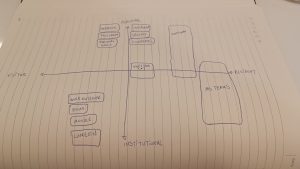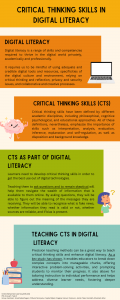Part I: Call me a Luddite, if you must, but don’t say I’m a digital native
I think my journey in this “digital age” – whatever that is supposed to mean – is quite typical for a Western, middle-class young millennial. It went something like this:
- There were a couple of computers around me when I was a kid, and I was occasionally allowed to use them to play Solitaire or Minesweeper. There was a computer lab in my elementary school and I remember drawing some not-so-great pictures on Paint back then. It wasn’t at all clear what computers were for.
- I got a desktop computer when I was about 13. It was a giant white thing with a dedicated desk in the living room. The Internet connection was an incredibly slow dial-up, which didn’t stop me from illegally downloading music and burning CDs, using MSN Messenger to chat with my friends, and wasting way too many hours of my life playing a game called Tibia. Having a computer was fun, but it didn’t seem to be particularly useful. If you needed information, you’d ask someone or check the library’s encyclopedia.
- By the time I got to high school, things started to change quickly. I got a laptop, the Internet connection switched to broadband, I got a phone that could take (very blurry) pictures, and a social network called Orkut appeared out of nowhere. Suddenly, all the cool people were online.
- During my bachelor’s degree, the student’s dreams and the teacher’s nightmares about Wikipedia were starting. Still, we either wrote assignments by hand or printed them to hand to the teachers.
- I started working during a wave of techno-optimism. Smartphones were ubiquitous. Startups were going to revolutionize everything. Facebook was connecting the world. Google meant we had all the answers in the palm of our hands. Uber would replace taxis. Amazon would replace retail. There was so much money available for folks promising to turn anything into an app. The old way of doing things was in its final days – or so it seemed.
- Somewhere between that and the pandemic, things turned sour. Social media was now being blamed for how polarized our societies were becoming. Fake news were blamed for anything from the election of lunatics like Donald Trump, Boris Johnson, and Jair Bolsonaro, to the rise of xenophobia and anti-vaxxer movements.
- COVID came and the first year and a half of my master’s degree was done online as most of the world switched to remote teaching. Nobody was ready for it. Most teachers and students had no clue how to use clunky platforms like Microsoft Teams. A whole generation of young people was deemed “lost” given the poor quality of remote learning for almost two years.
- Now, as I do my PhD, things are mostly terrible. Echo chambers and filter bubbles lead people to radicalizing internet rabbit holes. Every person has to be a personal brand. Influencers have ruined everything. Most platforms that seemed promising a few years back have either failed or become monopolies that offer terrible service. Our data is mined to train “generative AIs” that spit out nonsensical reproductions of human content. We’re all online, even though we hate it. We’re trapped. Dystopian cyberpunk stories are now a reality.
The reason for me giving this not-so-brief timeline is to say that I could clearly experience this process of “connecting everything together” that David White talked about in his webinar. I could see how, in a space of about 25 years, we went from not being connected, to having everything connected to everything else. To answer the prompt of the webinar, my life now looks like this:

I suppose that having lived through this would make me a “digital native”. The issue, though, is that I don’t find the term relevant. Yes, I may have been exposed to a certain range of new technologies as I was growing up, without anyone teaching me how to use them but assuming that I would “just know”. Nevertheless, this guarantees no proficiency in future tools. As I get older, there is more and more tech that I don’t understand. I use Instagram, but I’m too rusty, ancient and uncool for TikTok, for example.
These days, in fact, I have begun to identify more and more as Luddite. Yes, I still use these digital technologies all the more, but I am getting increasingly worried about their design and how they affect our individual and community lives. Brian Merchant’s Blood in the Machine: The Origins of the Rebellion Against Big Tech, Naomi Klein’s Doppelganger: A Trip Into the Mirror World, Cathy O’Neil’s Weapons of Math Destruction: How Big Data Increases Inequality and Threatens Democracy, Shoshana Zuboff’s The Age of Surveillance Capitalism: The Fight for a Human Future at the New Frontier of Power, among others, are foundational reads for me.
Part II: Let’s try this ONL business
I can still remember the time I was in love with the future the Internet was supposed to bring. Wikipedia would foster collaboration and break down the barriers of access to knowledge. We would connect to people from all over the world and become compassionate global citizens. Julian Assange was a hero of mine, and I obviously had a Guy Fawkes mask in my bedroom to show my support for Anonymous during the Occupy movement and the Arab Spring. I miss those days.
When I found out about this ONL course, I caught a glimpse of that past hope. You see, I want to believe that we can build meaningful knowledge in collaborative way online. I had to give it a try.
This more ideological point was, to be honest, the main reason for me joining ONL. How could I say no to the chance of working on a project with people from different backgrounds and expertise, but aligned towards the same goal?
There is, of course, a practical consideration. I am currently doing my PhD and would like to build a career in teaching. As digital tools are not going anywhere, it doesn’t hurt to learn more about how to use them well.
Part III: Evaluating the ONL experience
As we’re just finishing the first two weeks of “real” work, it is a bit early to say much about how the course is going. My PBL group is made up of interesting people, and I believe I am the youngest of the group by almost a decade. We diverge in many, many ways, which is a source of both fascination and frustration. Still, we are finding a way to combine our insights to create something new, bigger than each of us could individually. I really like that.
During Topic 1, we discussed the concept of digital literacy and talked about matters such as barriers to access and skills needed for digital literacy. We chose to focus on one of those skills – critical thinking – and created the awesome presentation below to show our journey!

Comments
Great post and I found myself nodding in agreement all the way. I’m a lot older than you but I share your concerns about how the internet and in particular social media have turned sour. I also embraced the openness and collaborative spirit of technology about 10-15 years ago and that’s where the ideas for this course came from. I’m also turning away from many aspects of digitalisation – I don’t like today’s compulsory digitalisation where you have to do everything with apps. At the same time I have benefitted so much from all this – friends and colleagues all over the world, projects and courses I have been involved in etc. ONL is an oasis of sharing and collaboration that has survived!
Jamile – fabulous post – I find it interesting that you also went the route of your experience of over a decade or so with the development of the tools and technologies of the digital age. I am intrigued that Millennials think that it actually went sour – whereas most GenX’ers (my generation) I think is actually embracing it fully – especially in the educational environment – not so much the social one – but that is just my opinion. I fully agree that working with such unique and diverse group people in our Group is so fascinating but also challenging – very similar to a real work environment actually. I am excited to bring what I have learned from the ONL experience to my real world of online instructional design and teaching.
What a great post!
“You see, I want to believe that we can build meaningful knowledge in collaborative way online. I had to give it a try. “ resonated with me instantly! As a true gen X I have a great understanding of both digital and analog worlds, and am equally comfortable with both. I see ONL as an opportunity to close all the gaps between generations, skills, and other dissimilarities while sharing knowledge and experiences.